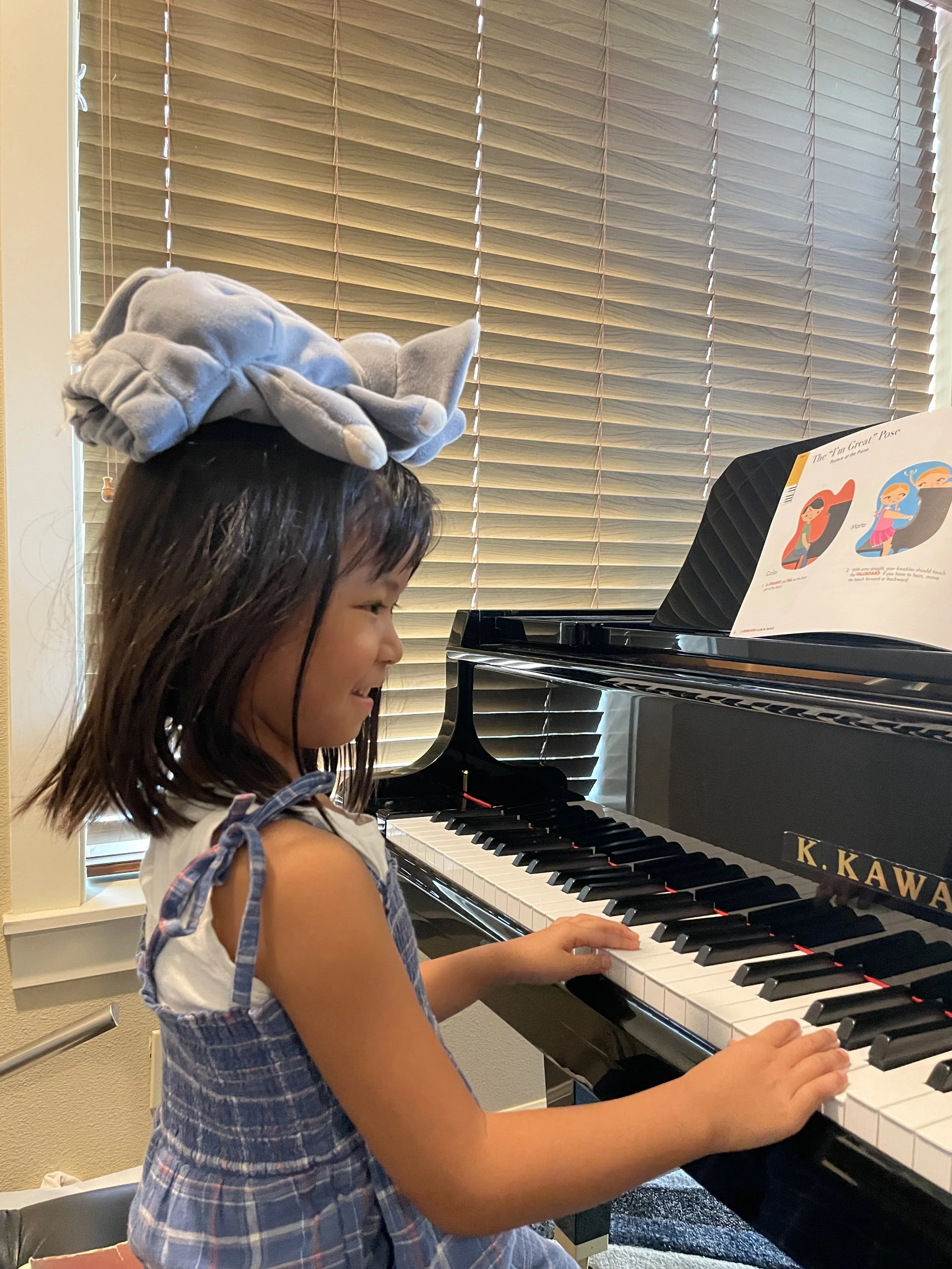Some of you know that I run a piano studio and I've been asked this question many times. What age is a good age to start formal music lessons? I will give my opinion for piano lessons since I don't teach other instruments.
For most, a good age to begin piano lessons is between 6 and 8 years old. A student would ideally have the requisite cognitive and physical skills.
Cognitive - ability to read or be at a pre-reading level, attention span
Fine Motor - finger strength and dexterity, hand-eye coordination
Gross Motor - posture, upper body strength (arm, shoulder)
Of course, there are teachers that teach younger ages. These teachers usually incorporate off-seat music games to teach musical concepts. And of course, a teacher comes across a musical prodigy occasionally.
Most importantly, always interview the piano teacher. What are the teacher’s qualifications? Does the teacher have experience teaching a specific age or piano level? What is his/her teaching methodology? Is it aligned with your goals or your child's goals with piano studies?
The teacher-student fit is very important. In addition to teaching experience, is the teacher able to connect with your child? A good teacher knows how to connect with your child, and understands how to get the buy-in from your child, and understands your child's strengths and weaknesses. A good piano teacher can help sustain your child's musical interest.
Ultimately, the home support is EXTREMELY important. The students that progress steadily are the ones where the parents encourage and help set the expectation for regular piano practice. Progress happens during the other 6 days of the week, not from the one day of piano lesson a week.
What if my child has disabilities or challenges e.g. neurodivergent child or has challenges with sensory, processing or spasticity. In my years of teaching, I find more students diagnosed with ADHD, dyslexia or are on the spectrum. A piano teacher has to have the skills to work with students with challenges. There are many ways to get around for example, the difficulty that dyslexia students have with note reading - with the use of color coded notes. And ways to get around hyperactivity by for example, introducing off-seat musical activities. Find a piano teacher with experience working with such students or a piano teacher with music therapy qualifications. This is why it is important to interview any potential piano teacher!
What should I do if I have a child under 5? Find a Music Together or Kindermusik or Musikgarten class! I personally like Music Together classes and enrolled my children when they were younger in these classes. Music Together was started by music therapists - the songs are catchy and developmentally appropriate focusing on early childhood development.
This is how I structure my Heart Strings Mandarin classes as well. I was trained as a music therapist and my training and experience in early childhood is how I structure my classes and build my curriculum.
In addition to Mandarin, I focus on:
- gross and fine motor movements with our instrument-play section of class, and our movement songs. For example, playing rhythm sticks different ways requires a certain amount of hand-eye coordination
- high quality music. I write many of the songs that I teach in class. The songs have to be catchy, musically sophisticated, and have meaningful lyrics. I play all musical instruments live in class. I focus on music education for early childhood, to help build a musical foundation for children, for later formal musical studies should they wish to pursue it.
What I wrote is my personal opinion and formed from my education, training and teaching experience.

